By Micah Ton, MA Sustainable Energy student
SPPA Prof. Alexandra Mallett’s Social Science and Humanities Research Council (SSHRC) funded project explores the links between governance (how decisions are made) and energy system changes in communities in Northwest Territories. The central aim of the research is to find out if there are more effective ways to support sustainable energy projects, such as renewable electricity, renewable heat provision, or energy efficiency initiatives in Northern Canada.
A substantial amount of the research has been facilitated at the community level. I am working with Prof. Mallett and MA Sustainable Energy graduate Jessica Leis to interviewed community members throughout the territory, with an emphasis on those from Tulı́t’a, Colville Lake and Yellowknife. Through these interviews, community members expressed their desire for researchers to give back to the community and engage local youth in topics surrounding sustainability and climate change.
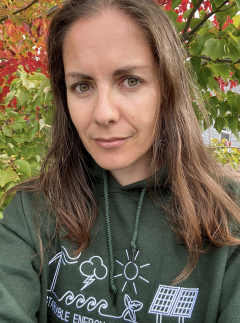
SRRB team member Catarina Owen
As a result, in partnership with the Sahtú Renewable Resources Board (SRRB), the research team developed an interactive seminar session for students. With the help of the SRRB, the team was able to connect with teachers from different schools in the Sahtú region. The teachers eagerly took time to watch and discuss the pre-teaching material that I created for the seminar. The students (from grade 7 to 12) actively participated in the seminar, where topics surrounding climate change, energy and sustainability were at the forefront of the discussion.
Students in each session provided detailed accounts of the effects of climate change in their community, including instances of warmer temperatures, changes in animal migratory patterns, as well as the adaptations to hunting and fishing on the land that have happened as a result.
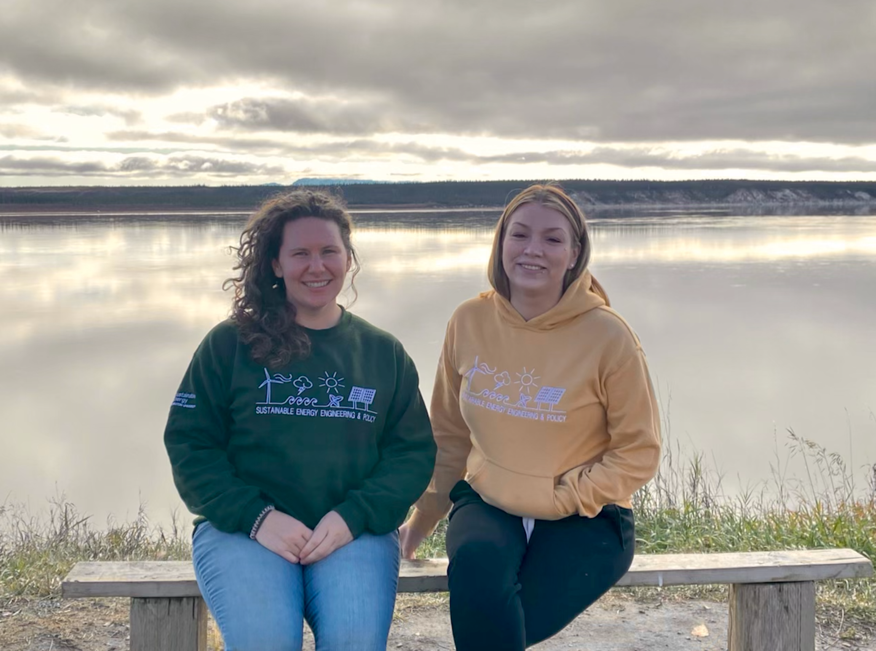
SRRB team members Alyssa Bougie (left), Jessie Yakeleya (right) and Catarina Owen (shown separately) sporting Carleton’s Sustainable Energy program sweaters, given as a thank-you for all their hard work.
Following the seminars, the students were invited to answer the question “What does sustainability mean to you?” to win prizes as part of the Sahtú Sustainability Youth Contest, hosted by Prof. Mallett’s team and the SRRB. The contest received numerous entries from youth all over the Sahtú region. The submissions included written responses and artwork, such as collages, drawings and photographs.
The textbook definition of sustainability is development that meets the needs of the present without compromising the ability of future generations to meet their own needs. However, in practice, the definition of sustainability is broad, and is often shaped by local context. For some, sustainability is a guide, a way of life; for others, it’s closely related to the natural environment, or grounded in community.
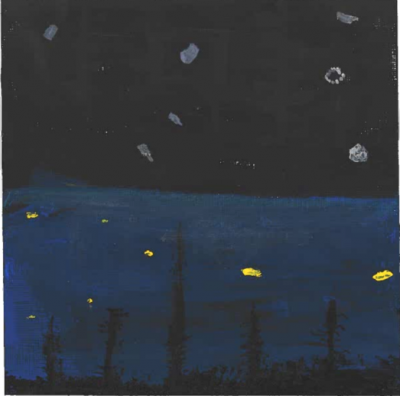
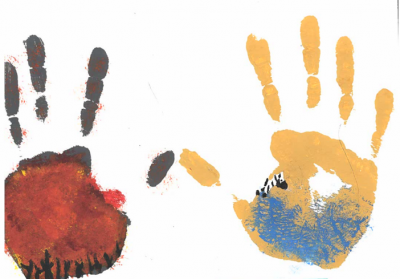
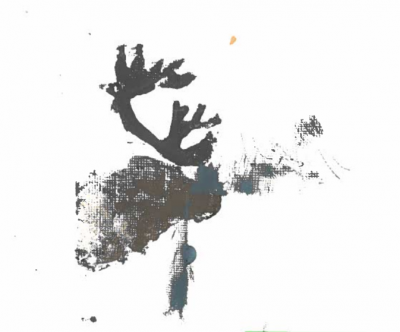
Pictured above are artwork submissions from grade 9 students, which beautifully demonstrate how sustainability is deeply rooted in personal values and experiences.
Similarly, here are some excerpts from written pieces submitted by Sahtú youth that capture the diversity of sustainability as well:
“In my mind, meeting your needs for example is when you hunt, not to hunt dramatically and only hunt for what you need… Future generations are what we need to think about, they will not have anything if everyone is only thinking about themselves today.”
“If we could mitigate the amount of energy waste we use by sustaining the energy, we could eventually make up for the over usage but due to our situation, to accomplish sustainability for every energy we use, we have to get everyone to change and switch the energy source we’re using to renewable sources.”
“Right now I think everyone in the world should be thinking about sustainability and how we are going to keep the earth healthy and the animal population healthy, because if not, humanity will have a big problem, and it will only be our fault for killing our earth.”
With thanks to the SRRB, Mallett’s team was able to engage with youth across the Sahtú region. Connecting with individuals across the North and hearing firsthand stories of how climate change and sustainability are impacting the day-to-day lives of these communities is an essential piece of the ongoing SSHRC project.